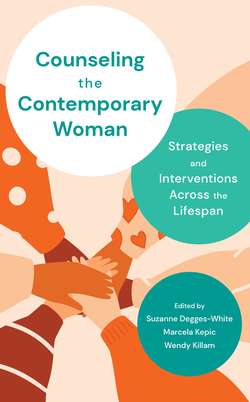Читать книгу Counseling the Contemporary Woman - Suzanne Degges-White - Страница 126
На сайте Литреса книга снята с продажи.
Friendships and Social Support Networks
ОглавлениеFor many women, midlife can offer the opportunity to explore new activities, let go of old responsibilities, and, potentially, enjoy the freedom to edit their social relationships as they desire (Degges-White & Borzumato-Gainey, 2011). As midlife brings a new awareness of the finiteness of time (Neugarten et al., 1965), women may be more selective in the relationships in which they invest time and energy. Women often become more discerning in their choices and are comfortable prioritizing the friendships that are the most authentic and rewarding. Although it is normal for the number of friendships a woman maintains to decrease over time, it can be especially difficult for midlife women to find new friends due to the often shrinking social circles in which people move over time.
If a woman’s social connections and support life have revolved around their children and their children’s friends’ families, midlife can be a lonely time as children grow up and those parent-to-parent friendships fade. If a marriage or long-term partnership dissolves at this period in life, a woman may also experience a crumbling or rearrangement of her social support network, if other couples made up the majority of her friendscape. These two situations can be especially challenging for midlife women, as they will be coping not only with the “empty nest” their children leave behind, or the loss of a life partner, but also the loss of their primary support system.
Working with clients who are experiencing this type of complicated social loss requires counselors to encourage the client to seek out new friendships while taking care to ensure that you, as the counselor, are not put into the position of “standing in” as a friend for a client or being perceived as the client’s primary support. Help your client brainstorm opportunities she could use to meet new people. Ask her to make a list of activities that she used to engage in that she could pick back up so that she can build new relationships with potential friends. If she is feeling the losses that accompany a newly “empty nest,” encourage her to volunteer for a cause she cares about to provide a place to invest her “caretaking” energy if that’s an aspect of motherhood that she misses. For some women, just starting small and joining an online support group or attending informational sessions at the local library or “Y” might be the most appropriate “first steps” in building up a friendscape. In addition to individual client factors, social dynamics must also be considered in light of cultural considerations.
